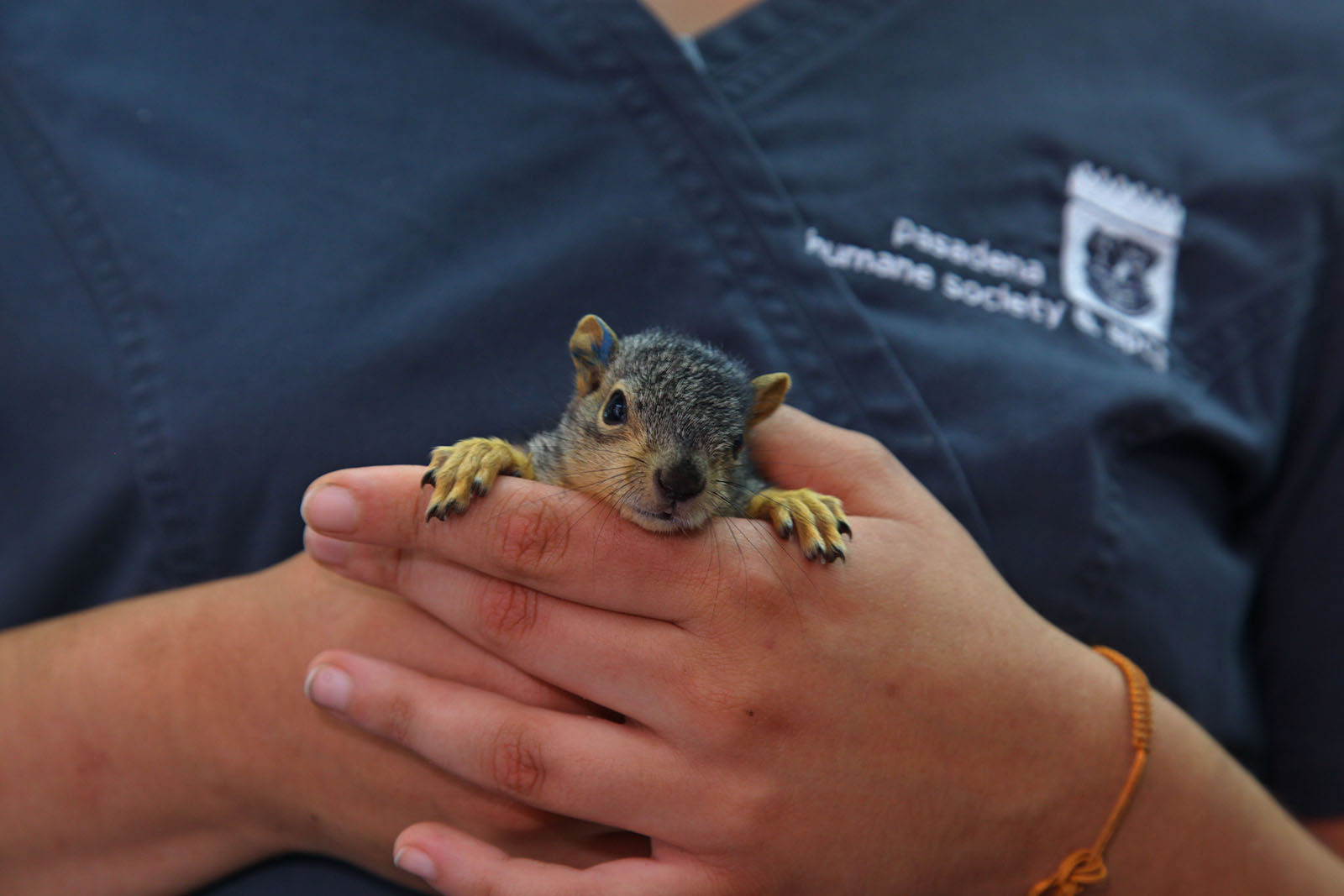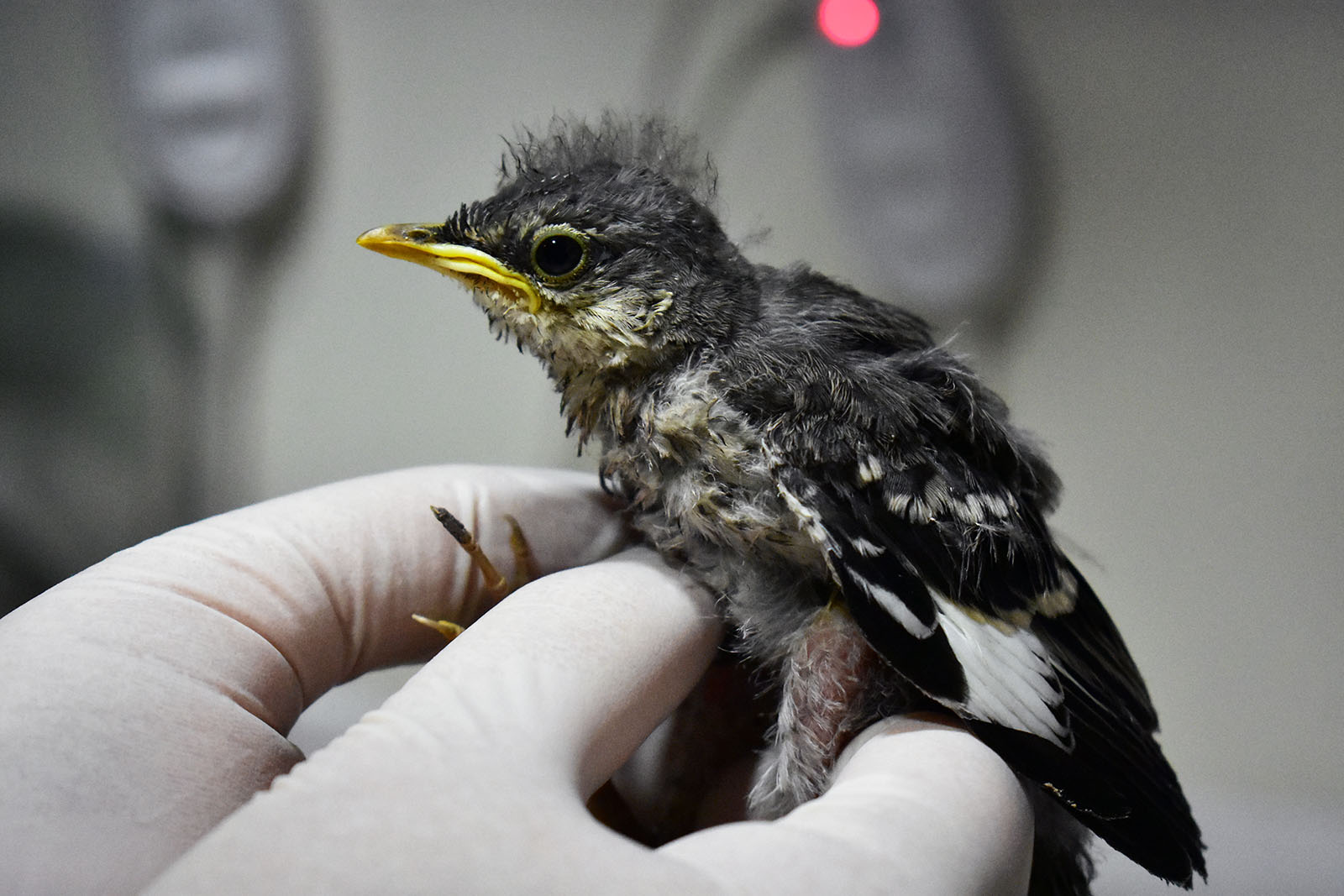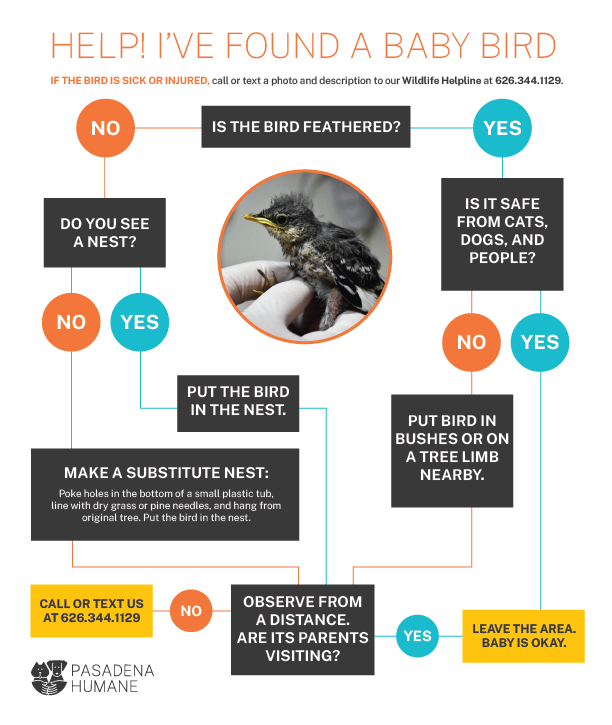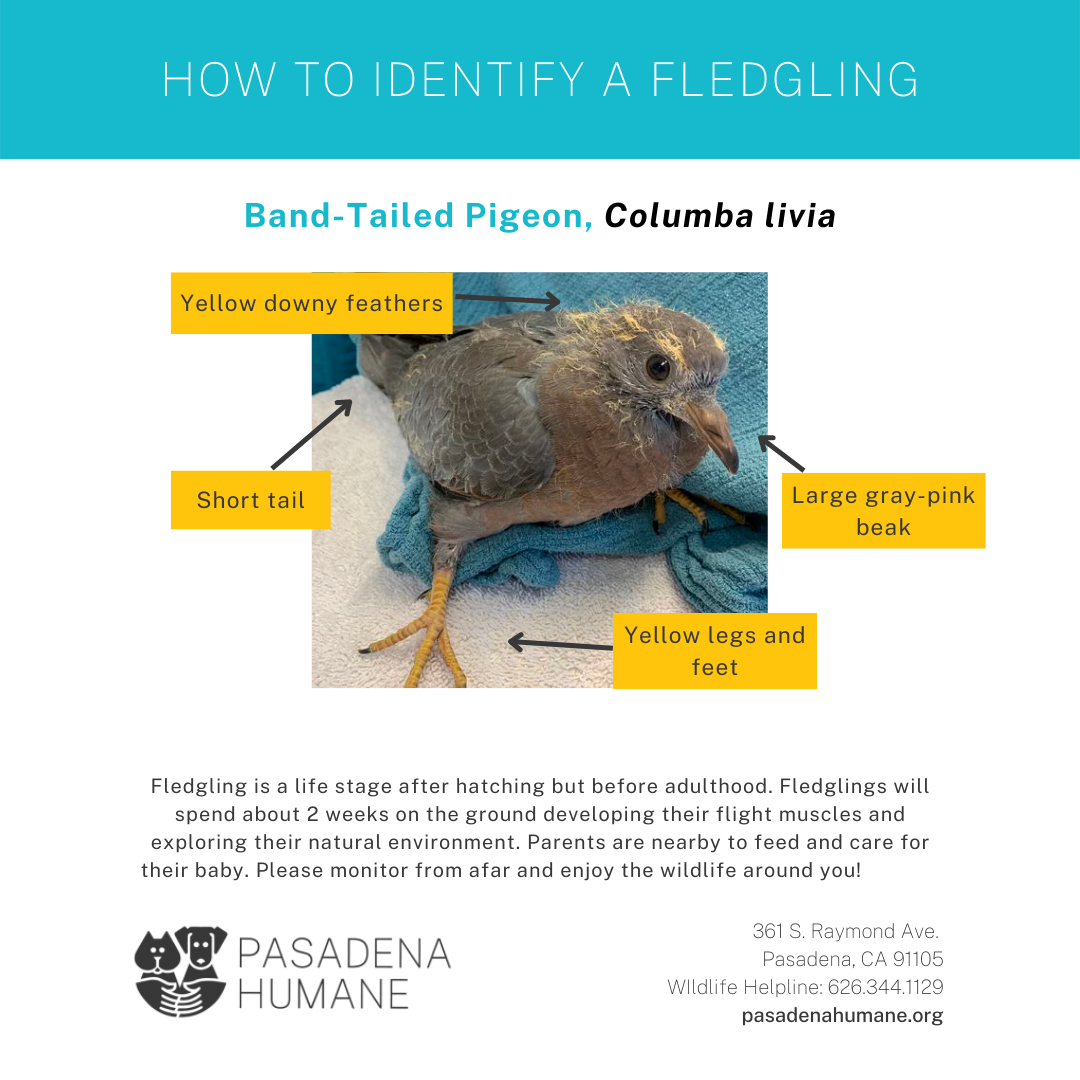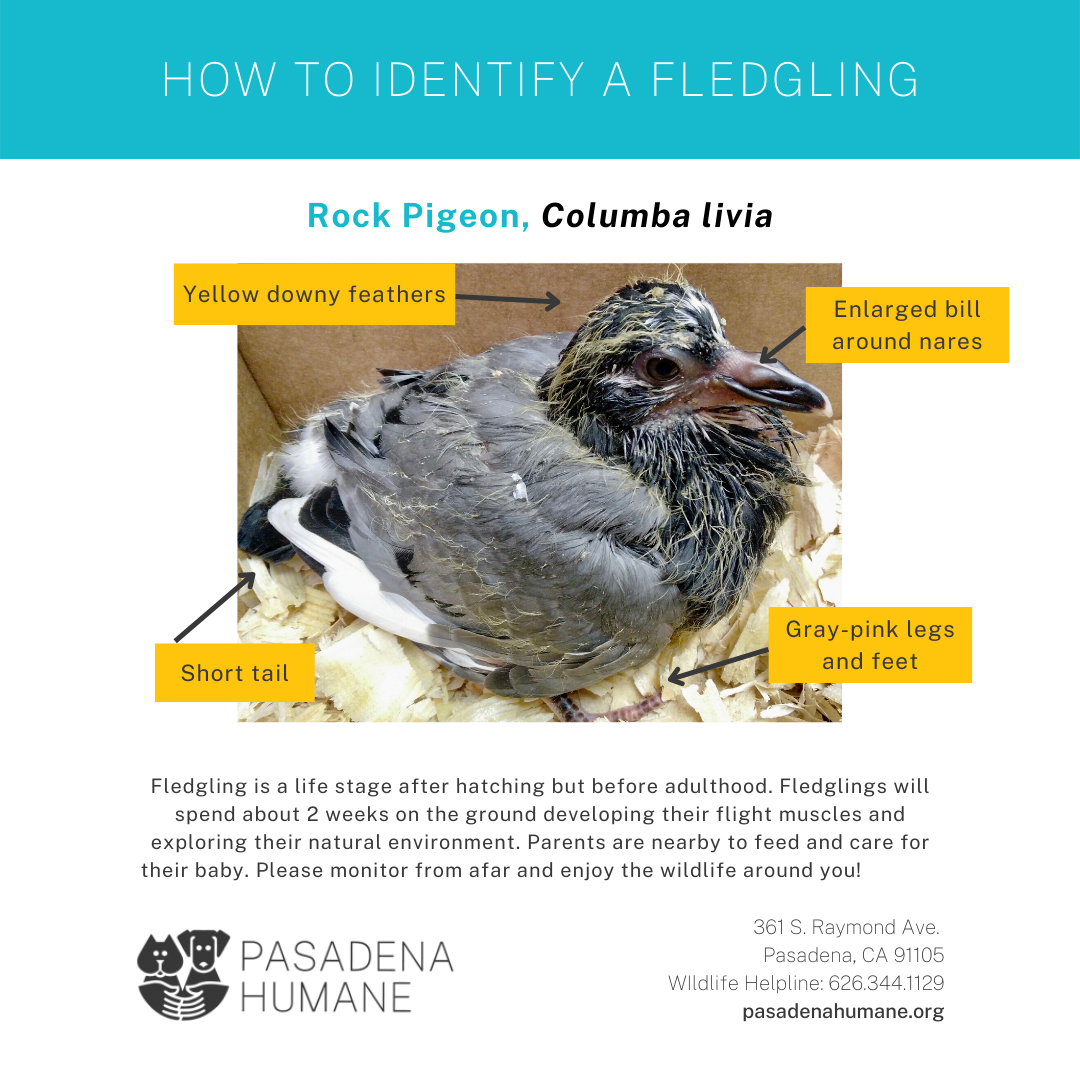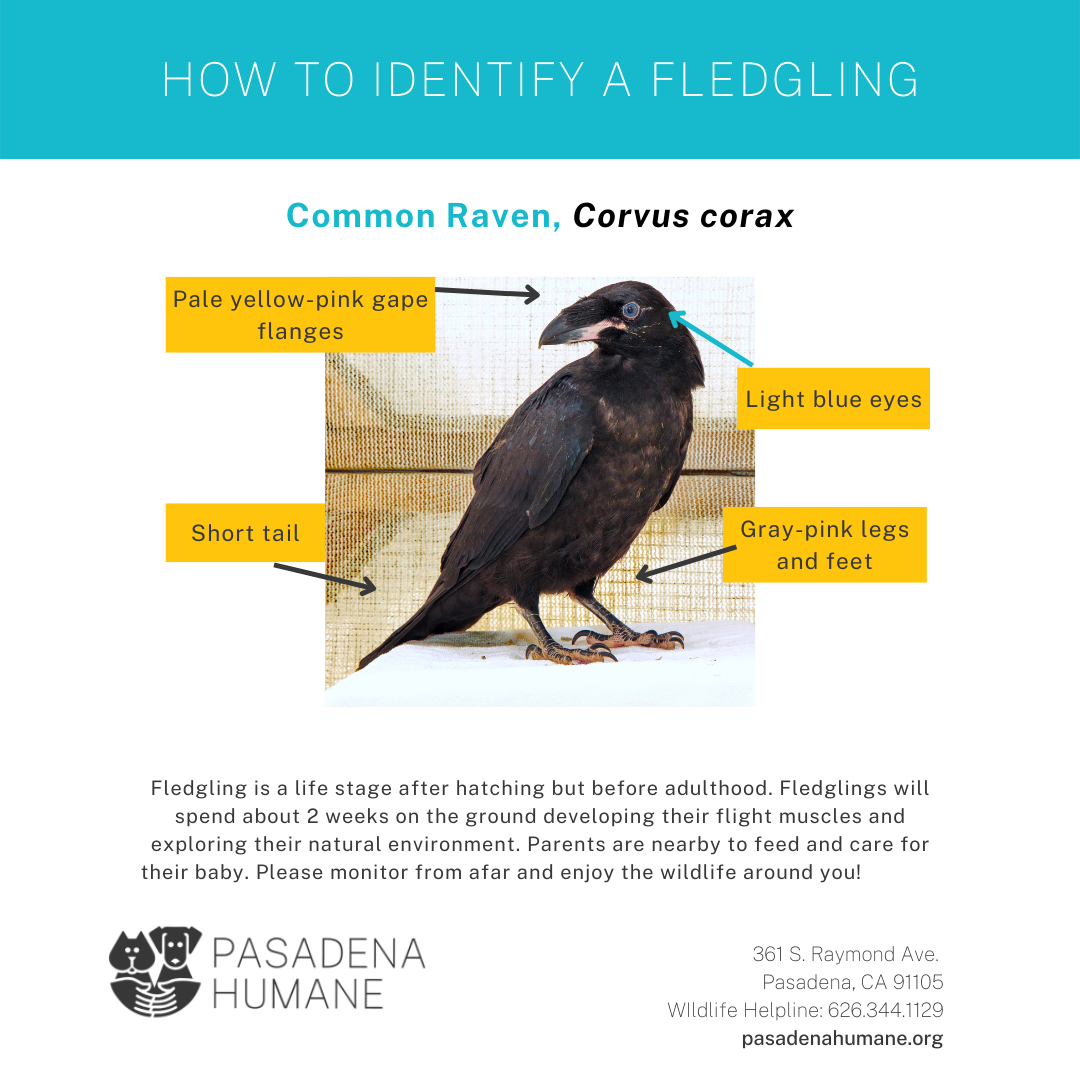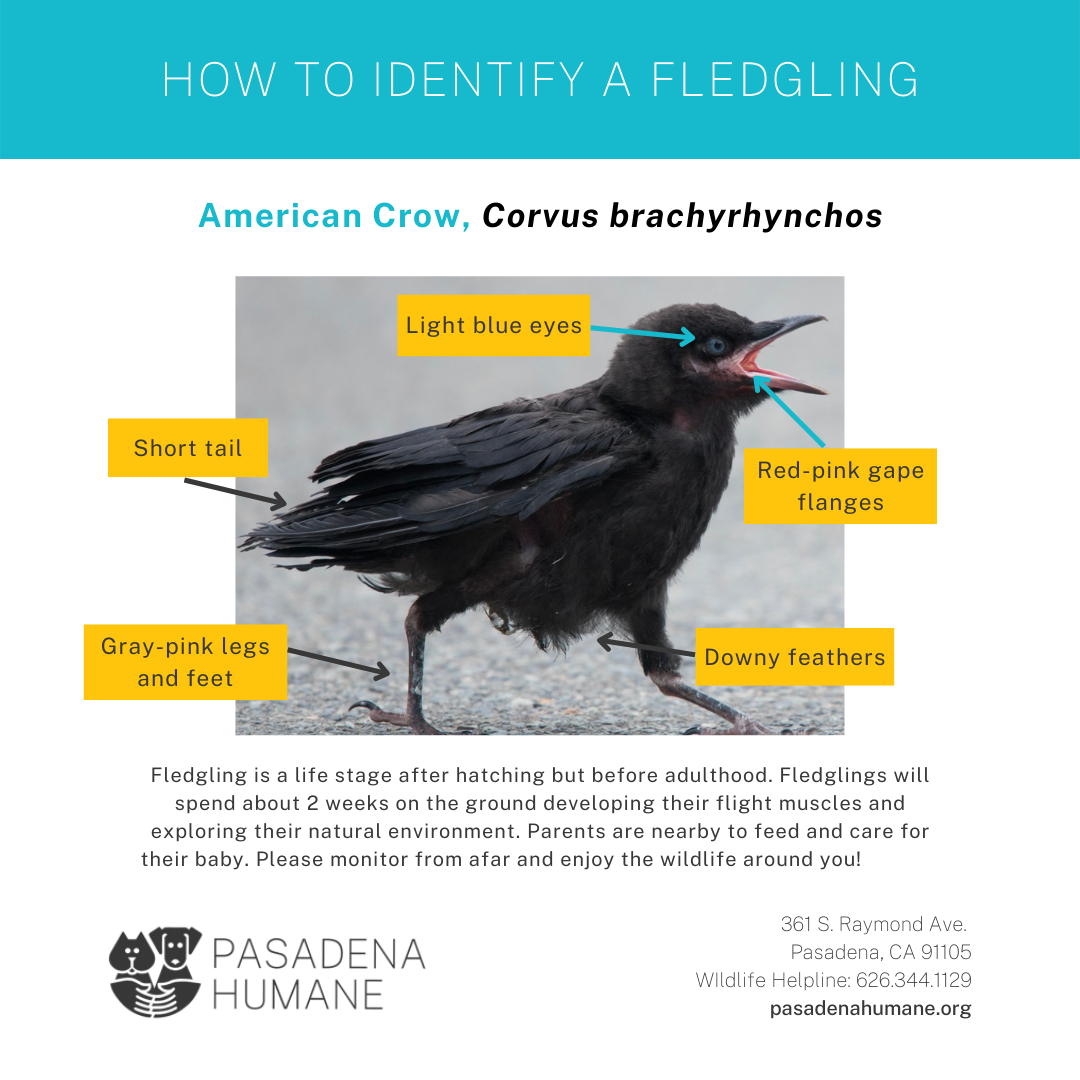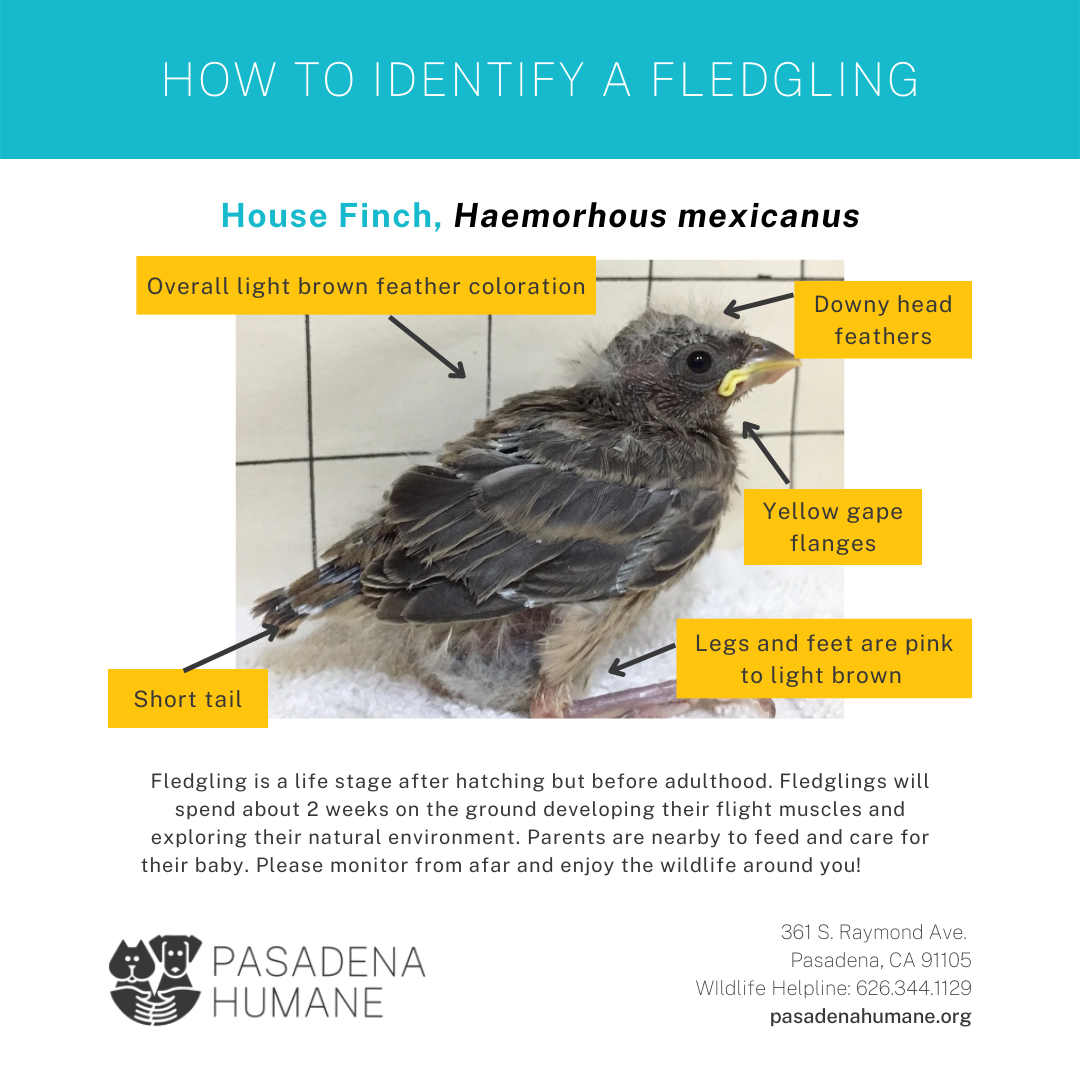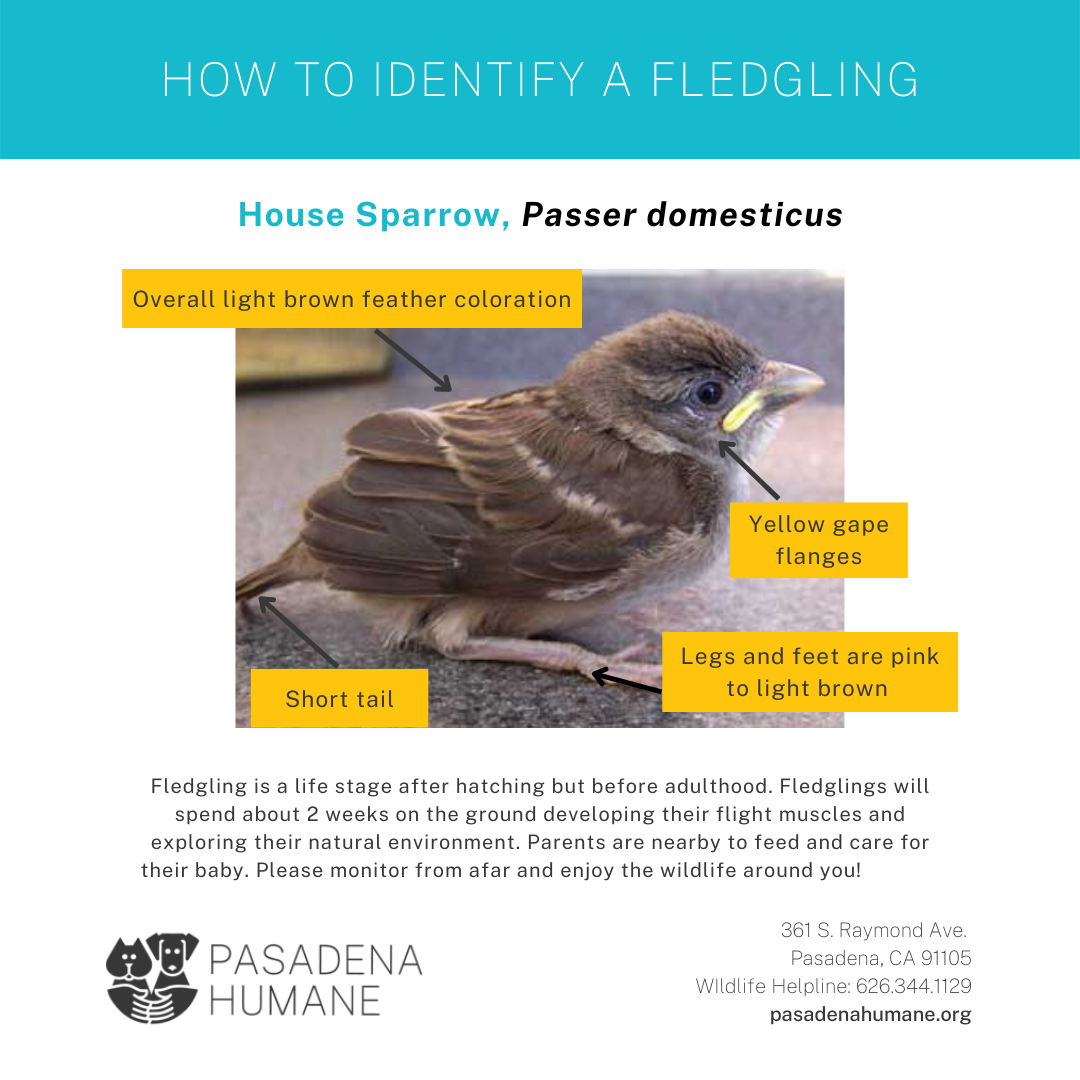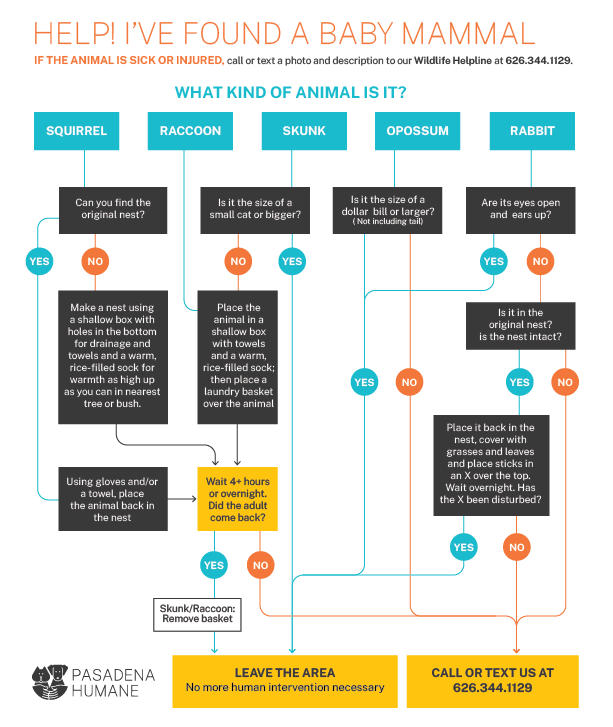Spring is baby wildlife season. And as the weather warms, we get an increase in calls from good samaritans who have found baby wild animals like squirrels, opossums and birds. Generally, if you find a baby wild animal, the best thing to do is leave it alone.
Many mammals such as deer and rabbits will leave their young unattended for extended amounts of time to avoid drawing in predators. Baby opossums leave their moms when they are about the size of a dollar bill.
While every situation is different, we created a few flowcharts to help determine what to do if you find a baby wild animal. If you are still unsure what to do, before removing the animal from the wild, please text a photo of the animal, the location, and a brief description to our wildlife helpline at 626.344.1129. and one of our techs will be able to assist you between the hours of 9:30 a.m. and 5:30 p.m.
Reminder: You must have a California State wildlife rehabilitation license to legally possess wildlife for more than 72 hours. Improper care of wild animals by well-meaning, but inexperienced rescuers risk serious health problems for wildlife, including improper diet and feeding, potential imprinting, improper and dangerous handling, and overall unnecessary stress of captivity.
Rescuing Baby Birds
Highly Pathogenic Avian Influenza is significantly affecting wild birds along the West Coast. To protect our populations, birds can only be admitted to the shelter with an appointment. Text (preferred) or call our Wildlife Helpline for further advice and to arrange an appointment if needed. Learn more about HPAI: https://pasadenahumane.org/bird-owner-hpai-information
If you’ve gone through our flow chart and determined you need to rescue a baby bird, follow these steps to ensure the bird’s health and safety.
- Prepare a transport container. Line a small cardboard box or paper bag with a soft, clean cloth with no strings or loops. Make air holes for ventilation.
- Protect yourself. Wear gloves to prevent the bird from pecking or scratching you. Gloves can also help protect you from any fleas, lice, ticks, or diseases the bird may be carrying.
- Place the bird in the transport container. Cover the bird with a light sheet or towel and gently put it in the prepared container. Tape the box shut or roll the top of the paper bag closed. Keep the container in a warm, dark, quiet place away from kids and pets. Do not attempt to force feed the bird.
- Warm the bird if it feels cold to the touch. Fill a sock with rice and microwave 30-60 seconds or until it is just warm to the touch and put next to the bird.
- Contact Pasadena Humane or a local wildlife center as soon as possible. Don’t keep an injured or sick bird at your home longer than necessary. We admit wildlife by appointment only. Please call or text the wildlife helpline at 626.344.1129 between 9:30 a.m. and 5:30 p.m. to make an appointment.
- Wash your hands after handling the bird. Additionally, wash anything the bird was in contact with to prevent the spread of disease and parasites to you and your pets.
HOW TO IDENTIFY A FLEDGLING
Fledgling is a life stage after hatching but before adulthood. Use this visual guide to help identify which fledgling you found:
Rescuing Baby Mammals
If you’ve gone through our flow chart and determined you need to rescue a baby mammal, follow these steps to ensure its health and safety.
- Prepare a transport container. Line a small cardboard box or paper bag with a soft, clean cloth with no strings or loops. Make air holes for ventilation.
- Protect yourself. Wear gloves to prevent the animal from biting or scratching you. Gloves can also help protect you from any fleas, lice, ticks, or diseases the animal may be carrying.
- Place the mammal in the transport container. Cover the animal with a light sheet or towel and gently put it in the prepared container. Tape the box shut or roll the top of the paper bag closed. Keep the container in a warm, dark, quiet place away from kids and pets. Do not attempt to feed it unless you have sought professional advice.
- Warm the animal if it feels cold to the touch. Fill a sock with rice and microwave 30-60 seconds or until it is just warm to the touch and put next to the animal.
- Contact Pasadena Humane or a local wildlife center as soon as possible. Don’t keep an injured or sick mammal at your home longer than necessary. We admit wildlife by appointment only. Please call or text the wildlife helpline at 626.344.1129 between 9:30 a.m. and 5:30 p.m. to make an appointment.
- Wash your hands after handling the mammal. Additionally, wash anything the animal was in contact with to prevent the spread of disease and parasites to you and your pets.
Stay Up To Date
Sign up for our email newsletter


